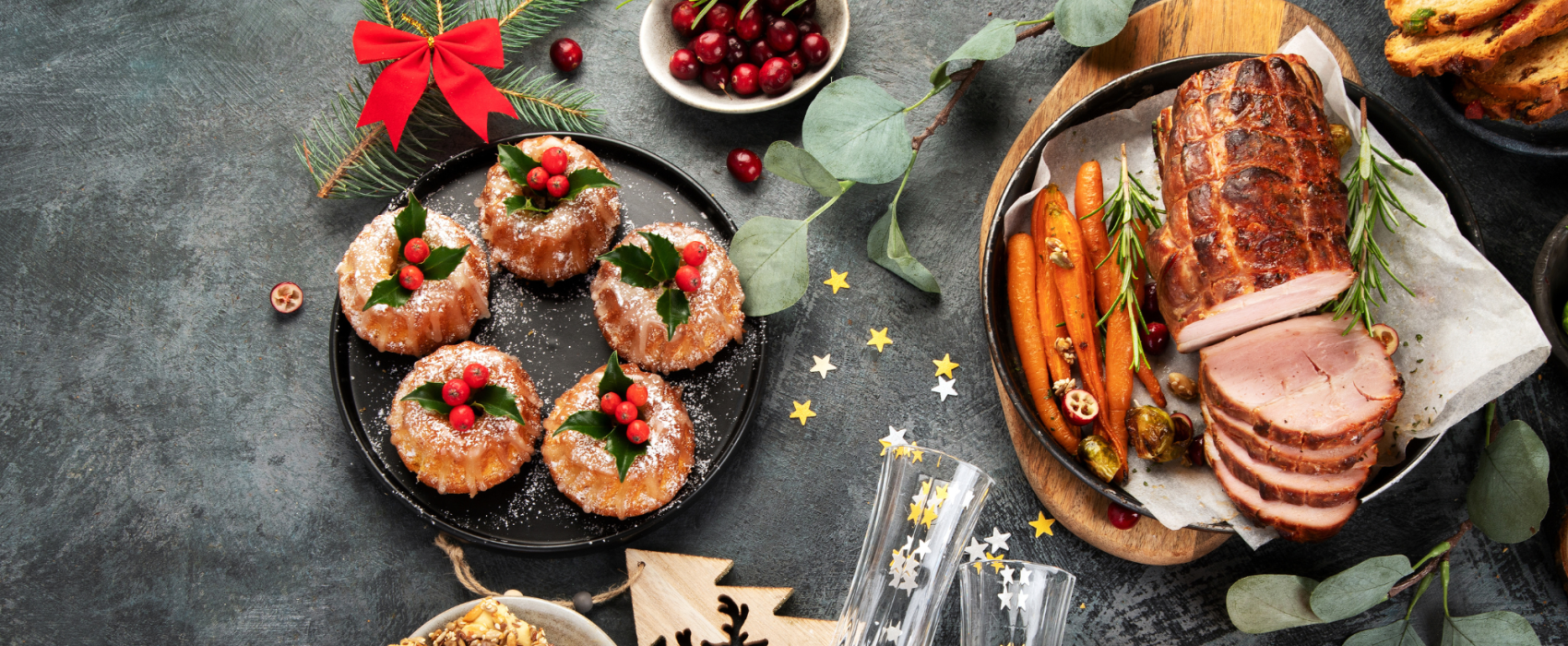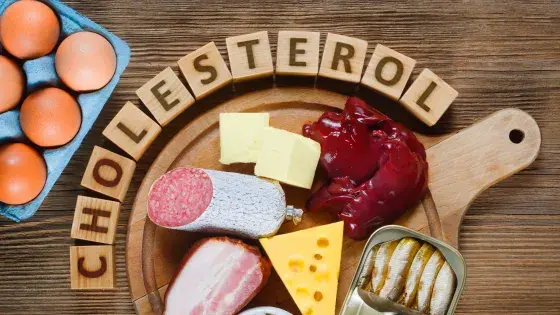The festive season can be synonymous with indulgence. Christmas brings with it an array of rich, hearty foods – from roast dinners and creamy desserts to cheese boards and festive nibbles. Whilst it's a time to enjoy yourself, it’s also important to be mindful of how festive eating can affect your cholesterol levels, particularly if you’re already managing high cholesterol or are at risk of developing it.
What Is Cholesterol and Why Does It Matter?
Cholesterol is a fatty substance found in your blood that your body needs to build healthy cells and make hormones. While cholesterol itself isn’t inherently bad, having too much bad cholesterol (low-density lipoprotein or LDL) can lead to fatty deposits in your arteries, increasing the risk of heart disease and stroke. Conversely, good cholesterol (high-density lipoprotein or HDL) helps remove other forms of cholesterol from your bloodstream.
Foods high in saturated fats can contribute to an increase in LDL cholesterol if consumed in excess. That’s why it’s important to be mindful of your food choices over the festive season, especially if you’re already managing your cholesterol levels.
Festive Foods That Can Impact Cholesterol
Many traditional Christmas dishes are high in saturated fats. Here are some examples of festive favourites that could have an impact:
- Cheese boards: Cheese is a staple at Christmas gatherings but often contains high levels of saturated fats.
- Christmas puddings and cakes: These desserts are typically made and served with butter and cream, both of which are high in saturated fats.
- Roast meats with skin: Turkey or goose skin, and fatty cuts of meat like pork or lamb, can contribute to LDL cholesterol levels.
- Sausages and bacon: Pigs in blankets and other processed meats are high in saturated fats and salt, both of which can affect heart health.
- Creamy sauces and gravy: Traditional accompaniments like bread sauce or cream-based gravies can add to your saturated fat intake.
- Pastries and mince pies: These are often made with butter or lard, both of which can raise cholesterol.
While enjoying these foods in moderation is unlikely to cause harm, it’s worth being mindful of how much you’re consuming.
Tips for Enjoying Christmas While Managing Cholesterol
The good news is that you don’t have to completely avoid your festive favourites. With a few simple adjustments, you can enjoy food while keeping your cholesterol in check.
- Opt for Heart-Healthy Fats
Not all fats are bad! Replace saturated fats with unsaturated fats where possible. For example:- Use olive oil or rapeseed oil instead of butter for cooking or roasting
- Snack on unsalted nuts like almonds or walnuts instead of crisps or cheese
- Include oily fish such as salmon, mackerel or trout in your festive menu—these are rich in omega-3 fatty acids, which can boost good cholesterol.
- Fill Up on Fibre
Fibre can help lower cholesterol by binding to it in the digestive system and removing it from the body. Include fibre-rich foods in your Christmas meals, such as:- Wholegrain bread, crackers or stuffing
- Vegetables like Brussels sprouts, carrots, and parsnips
- Legumes such as lentils or chickpeas in soups or side dishes.
Choose Leaner Meats
If turkey is your Christmas centrepiece, opt for white breast meat without the skin. If you’re serving other meats, trim visible fat and avoid processed options like sausages or bacon.Limit Alcohol Intake
Alcohol is a big part of festive celebrations, but drinking in excess can contribute to weight gain and negatively impact cholesterol levels. Stick to recommended guidelines and alternate alcoholic drinks with water or sugar-free soft drinks. Alcohol might increase the chances of smoking for some people. Smoking can also adversely affect your cholesterol balance and enhance the harmful impact on arteries.- Stay Active
Incorporating physical activity can help manage cholesterol and overall heart health. Take family walks during the festive period, play active games or even dance to your favourite festive tunes.
Maintaining a balance between festive treats and heart-healthy choices is key to enjoying the season without compromising your health. If you’re concerned about your cholesterol levels or are unsure how to manage them during the festive season, it’s a good idea to speak to a healthcare professional. They can provide personalised advice on managing your diet and lifestyle, as well as monitor your cholesterol levels if necessary.
There is a higher incidence of cardiac events and strokes in the winter months. Remember, if you experience symptoms such as chest pain,shortness of breathor any sudden one sided weakness or loss of speech, it’s essential to seek medical attention immediately, as these could indicate a more serious heart-related issue or stroke.

